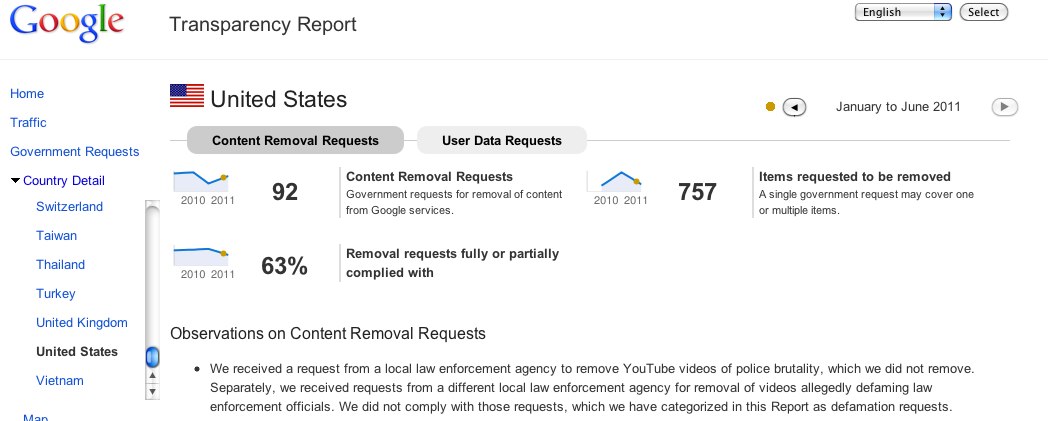Google to cops: Police brutality videos will stay on YouTube

Regardless of its intentions, Google has given the protesters involved with the Occupy Wall Street a bit of hope that freedom of speech in the United States is still alive and well - and comes in the form of YouTube videos.
The company has released its Transparency Report for the first half of 2011 - and in that report, it specifically notes that it received a request from a local law enforcement agency to remove YouTube videos of police brutality and a different request from a different agency to remove videos that allegedly defame law enforcement officials.
In both instances, Google did not comply with the requests, which the company did not offer specifics about.
The report actually covers the first half of the year so these requests were not part of the Occupy Wall Street movement. In recent days, there has been criticism of how police officials have handled the crowds at these movements. And, just as you can imagine, the protesters - and bystanders - at these protests have been armed with video-capable mobile phones that can upload a clip to YouTube in a matter of seconds.
For Google, the bigger message is clear: YouTube has become more than a video site - it’s become the digital archivist of historical events.Those clips - just like the famous images of the Kent State shootings in 1970 - are part of history now, a citizen movement that will undoubtedly shape Washington politics, impact local law enforcement policies and possibly change the course for next year’s presidential election.
YouTube has become a video channel for the people and, as such, users have an expectation that Google won’t just remove a video because local cops think it makes them look bad. That says a lot about the First Amendment integrity of the company. Or maybe it’s just Google’s way of keeping the protesters from camping out in front of the Googleplex.
Regardless, Google’s role here - whether it likes it or not - is to archive the video footage of our nation’s (and world’s) events and the transparency at which it’s doing this is to be commended. From the look of the report, Google received an average of about 4-5 takedown requests daily - or 757 in the six-month period. Of those, 113 were for videos on YouTube.
In all, Google complied - or partially complied - with 63 percent of the total takedown requests across all of its properties, including Google Images, Google Maps and Blogger. Some of those requests were categorized under topics such as hate speech, national security and violence - so there could be some legitimate reasons for the takedowns.
Google didn’t offer specifics on the incidents - and that’s OK. Google’s report lets all of us know - from angry protester to frustrated police chief - that videos of police acting inappropriately can be uploaded to YouTube and will stay there, even if police officials don’t like it.
Related coverage: Google's Transparency Report shows sharp rise in takedown requests
